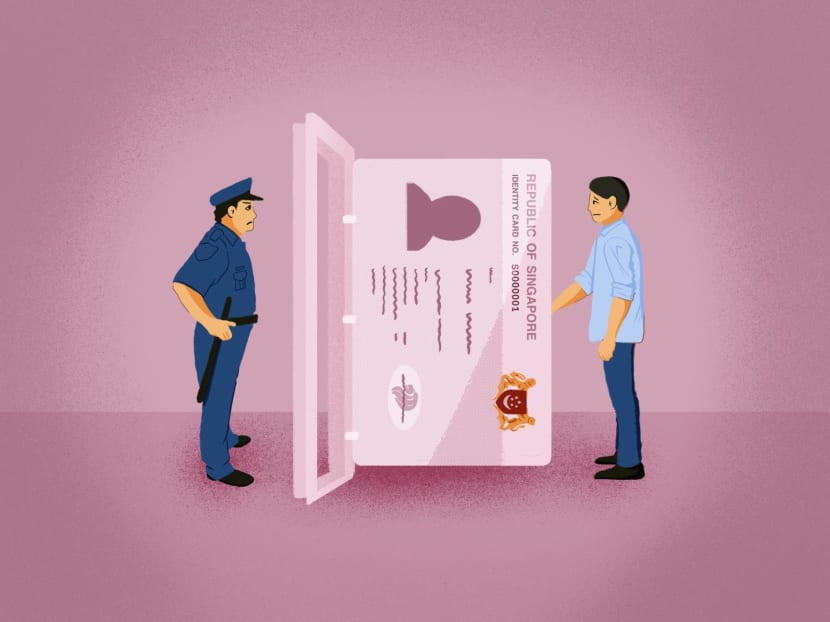Explainer: Why not reporting a change in address to ICA is an offence
SINGAPORE — The recent case of a 62-year-old man who was given a fine of S$2,000 for failing to report a change in his residential address has shone a spotlight on why there is a need to do so.

- A 62-year-old man in Singapore recently got a S$2,000 fine for not reporting a change in his residential address
- Under the National Registration Act, identity card holders must report a change in residence within 28 days
- This was implemented in the 1960s to ensure that population statistics are accurate and identification documents are reliable
- Updated addresses will be reflected across government agencies but not commercial companies such as banks and telecommunication firms
- Experts told TODAY that commercial companies are not included in the address update system perhaps due to privacy and cybersecurity concerns
SINGAPORE — The recent case of a 62-year-old man who was given a fine of S$2,000 for failing to report a change in his residential address has shone a spotlight on why there is a need to do so.
Lee Kah Hin, a Singaporean, did not report a change of residence to the Immigration and Checkpoints Authority (ICA) within 28 days of moving to his new home on Tampines Street.
He did so knowing that moneylenders would send him reminder letters to his former address whenever he could not keep up with his repayments.
As a result, they were sent to his old address after Lee had defaulted on debt repayments, causing his previous landlord to be inundated with demand letters.
Currently, all National Registration Identity Card (NRIC) holders can report their change in address online through the ICA website.
Their address will be updated within one working day across public agencies such as the Central Provident Fund Board (CPF) and Housing and Development Board (HDB) but not commercial companies such as banks as well as telecommunication and insurance firms.
TODAY spoke to lawyers to find out why failing to report a change in address is counted as an offence and whether updates for one’s address can be extended to commercial companies as well.
IS THIS A CRIME?
Mr Cory Wong, an associate director of Invictus Law Corporation, pointed out that not reporting a change in address is not a “crime” as defined under the Registration of Criminals Act.
It is instead an “offence” of a regulatory nature and not all offences end up being a criminal offence, he said.
“For example, illegal parking is not a criminal offence but it is still an offence nonetheless that attracts some form of penalty,” he said.
Under the National Registration Act, all identity card holders who change his or her place of residence must report the change to ICA within 28 days.
Those who fail to do so may be jailed for up to five years or fined up to S$5,000, or both.
Ms Michelle Yeo, a lawyer at LVM Law Chambers, said that this Act came into effect in the 1960s when Singapore was coming out of colonial rule, where forgeries and inaccuracies on identification documents were rife.
“Given the relative illiteracy of our population and the state of our infrastructural development at the time, getting addresses right was a major challenge,” she added.
Mr Jek Yeun Thong, then Minister for Labour, in moving the second reading of the National Registration Bill in 1965, said that this system would ensure the compilation of more up-to-date and reliable population statistics.
“And in due course, will give each Singapore resident an (identification) number, which will be used for all purposes in future, an essential requirement to meet the goals of a welfare state,” he said.
The address listed on the NRIC is used by many government agencies and enforcement authorities to communicate officially with Singapore residents.
Associate Professor Ferlin Jayatissa from the School of Law at the Singapore University of Social Sciences (SUSS) said that there are people who choose to "exploit" the retention of an old address.
These are sometimes for dishonest purposes such as registering their children into schools at preferred locations or to maintain certain housing privileges or, in the recent case, to avoid debt collection or loan-shark harassment.
“Although there are those who do exploit the retention of an original address, the recent case involved an element of harm or inconvenience to others by the retention of the original address, which justified him (Lee) being charged and sentenced for it," Assoc Prof Jayatissa said.
Lee is the second man to be charged with such an offence since 2020. In November 2020, a 28-year-old man had refused to change his address despite ICA officers advising him to do so.
He was also under investigation by the police for another offence, though ICA did not state what it was.
WHAT IF THIS WAS NOT MANDATED BY LAW?
Assoc Prof Jayatissa said that not mandating that residents update their addresses in a timely manner would result in enforcement authorities having greater difficulty in locating the NRIC holder.
“This may have a direct impact on criminal investigations, regulatory actions and enforcement of safety measures such as during Covid-19,” he said.
Ms Yeo from LVM Law Chambers said that the national register would then contain many errors, which is relied on for official communications.
“Social services could also go to the wrong people. For example, government-issued vouchers could go to the wrong recipients if their intended recipients did not update their addresses,” she added.
WHAT ABOUT COMMERCIAL COMPANIES?
A change in address reported to ICA will be updated within one working day across 23 public agencies participating in the One-Stop Address Reporting Initiative (Oscars).
However, this does not include commercial companies such as telecommunication and insurance firms.
Lawyers told TODAY that this could be due to privacy and cybersecurity concerns.
Assoc Prof Jayatissa of SUSS said that a person’s residential address is highly personal data, which has a direct impact on their sense of security, accessibility and privacy.
He added that the Personal Data Protection Act fiercely protects the individual’s rights to the accessibility and use of such personal data.
“Banks and telcos are entities that are required to obtain, use and retain such personal data from only their customers personally and directly, and for specific and limited commercial purposes only.”
Mr Wong from Invictus added that there may be differing standards of cybersecurity between the private and public sectors.
“Having private-public data-integration could pose an exploitable data access point by cyber criminals,” he said.
While technological safeguards or improvements could help to mitigate such risks of breach, there will always be technological limitations to a certain extent, Mr Wong added.











